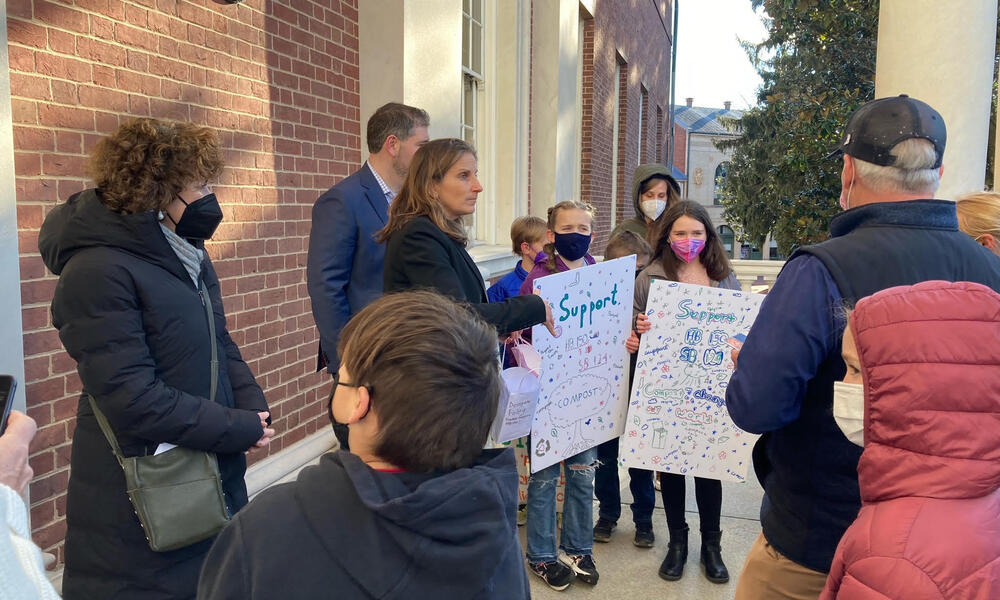In early 2022, students from Maryland visited the state capital building in Annapolis and helped pass state legislation aimed at reducing the impacts of food waste on our environment.
A group of Maryland high school students from Bethesda (at Chevy Chase and Richard Montgomery High Schools) began noticing the vast amount of food thrown away every day at school – roughly 40% of the garbage contained food scraps, paper trays, and uneaten/unopened food. Understanding the impact of landfills on climate change, and how many hungry families live in their county, these students realized if they could change this behavior, they could make a difference for both the environment and for their local community. The students formed a student-run organization based in Montgomery County, Maryland, called Coalition to Re-Imagine Food Waste, which established food waste collection programs in public schools around the county and state.
The coalition applied and was awarded a grant from WWF’s Food Waste Warrior program, which provides funding and project support for teachers, administrators, and students to implement food waste reduction practices at their schools. Food Waste Warrior aims to turn cafeterias into classrooms—helping students to conduct food waste audits, advocate on the issue of food waste, and identify creative ways to reduce it. Upon receiving the grant, the coalition piloted composting programs at local elementary schools, prioritizing lower income areas. Student ‘ambassadors’ from the upper grades guided younger students in the lunchroom on the proper ways to separate food into clearly labeled containers for recycling plastics and composting food scraps. The coalition also worked with local food centers to recover and redirect unopened packaged food and fresh fruits and veggies to families in need.
Building on their local efforts in the community, these remarkable students then set their sights on state level policy change, collaborating with Maryland delegates to show their support on new legislation that would create a grant program allowing more schools in Maryland to receive funds for compost and food recovery efforts. These state grants would cover creating separate bins in cafeterias to collect leftover food and the necessary transportation to get it to a composting facility, arranging for unopened school food to be donated or redistributed to students, educating students about food waste and how to prevent it, and more.
